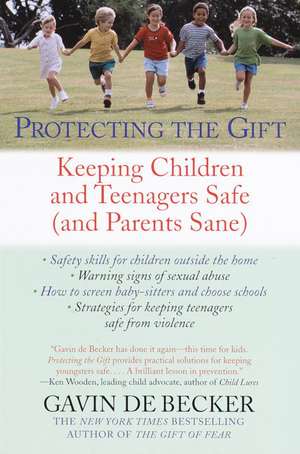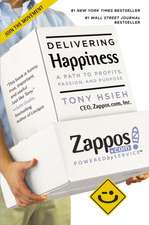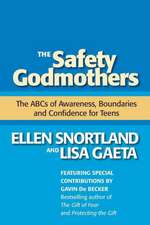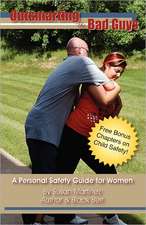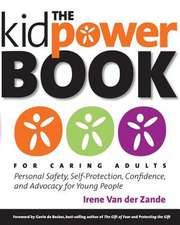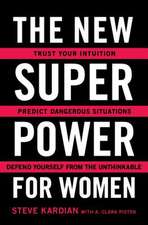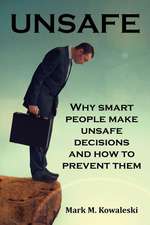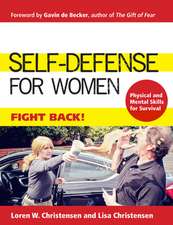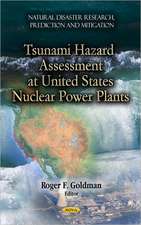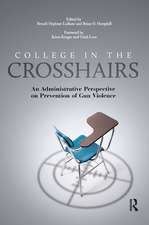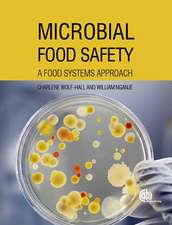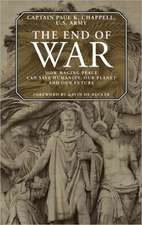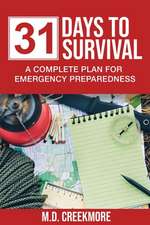Protecting the Gift: Keeping Children and Teenagers Safe (and Parents Sane)
Autor Gavin de Beckeren Limba Engleză Paperback – 30 apr 2000
Warning signs of sexual abuse
How to screen baby-sitters and choose schools
Strategies for keeping teenagers safe from violence
All parents face the same challenges when it comes to their children's safety: whom to trust, whom to distrust, what to believe, what to doubt, what to fear, and what not to fear. In this empowering book, Gavin de Becker, the nation's leading expert on predicting violent behavior and author of the monumental bestseller The Gift of Fear, offers practical new steps to enhance children's safety at every age level, giving you the tools you need to allow your kids freedom without losing sleep yourself. With daring and compassion, he shatters the widely held myths about danger and safety and helps parents find some certainty about life's highest-stakes questions:
How can I know a baby-sitter won't turn out to be someone who harms my child? (see page 103)
What should I ask child-care professionals when I interview them? (see page 137)
What's the best way to prepare my child for walking to school alone? (see page 91)
How can my child be safer at school? (see page 175)
How can I spot sexual predators? (see page 148)
What should I do if my child is lost in public? (see page 86)
How can I teach my child about risk without causing too much fear? (see page 98)
What must my teenage daughter know in order to be safe? (see page 191)
What must my teenage son know in order to be safe? (see page 218)
And finally, in the face of all these questions, how can I reduce the worrying? (see page 56)
Preț: 113.23 lei
Nou
Puncte Express: 170
Preț estimativ în valută:
21.67€ • 22.62$ • 17.93£
21.67€ • 22.62$ • 17.93£
Carte disponibilă
Livrare economică 15-29 martie
Preluare comenzi: 021 569.72.76
Specificații
ISBN-13: 9780440509004
ISBN-10: 0440509009
Pagini: 352
Dimensiuni: 157 x 235 x 24 mm
Greutate: 0.4 kg
Editura: dell
ISBN-10: 0440509009
Pagini: 352
Dimensiuni: 157 x 235 x 24 mm
Greutate: 0.4 kg
Editura: dell
Recenzii
"Gavin de Becker has done it again—this time for kids. Protecting the Gift provides practical solutions for keeping youngsters safe....A brilliant lesson in prevention."—Ken Wooden, leading child advocate, author of Child Lures
"A must for all parents raising children in an increasingly violent society."—FBI behavioral scientist Robert Ressler
"Everyone in contact with children should read this important book. It can help save lives."—Publishers Weekly, starred review
"Dynamic, inspiring and practical... and an entertaining and gripping read. This is a must read for every parent or anyone who cares for kids."—Ellen Snortland, author of Beauty Bites Beast: Awakening the Warrior Within Women and Girls
"A must for all parents raising children in an increasingly violent society."—FBI behavioral scientist Robert Ressler
"Everyone in contact with children should read this important book. It can help save lives."—Publishers Weekly, starred review
"Dynamic, inspiring and practical... and an entertaining and gripping read. This is a must read for every parent or anyone who cares for kids."—Ellen Snortland, author of Beauty Bites Beast: Awakening the Warrior Within Women and Girls
Notă biografică
Gavin de Becker is a three-time presidential appointee whose pioneering work has changed the way our government evaluates threats to our nation’s highest officials. His firm advises many of the world’s most prominent media figures, corporations, and law enforcement agencies on predicting violence, and it also serves regular citizens who are victims of domestic abuse and stalking. De Becker has advised the prosecution on major cases, including the O.J. Simpson murder trial. He has testified before many legislative bodies and has successfully proposed new laws to help manage violence.
Extras
The Search for Certainty
Friday was the one evening each week that Holly spent entirely with Kate, usually along with other mothers and their daughters met through Kate's school. This particular Friday, the plan was an early meal at a restaurant, followed by a movie. At dinner, the women were protective, as always, but they'd recently initiated a new freedom: letting the girls sit at a nearby table on their own. The tables were close enough for Holly to see that her daughter wasn't eating much—it interfered with talking—but she didn't bug Kate about that in front of her friends; she was eight now, old enough to be embarrassed.
If you took away their twenty-five-year age difference, Holly and her daughter were like twins: both slender with short dark hair and large blue eyes, both liked to talk and to laugh, and both loved movies. This particular Friday, their movie would be Jurassic Park. After dinner Holly decided to leave the car at the restaurant and take advantage of the extra-warm night by walking the two blocks to the theater with Kate. None of the other mothers chose to walk, one of them noting, "The sun will be down when we get out, and I don't want us to have to make our way back to the car in the dark." So Kate and Holly enjoyed the walk on their own.
At the theater, they joined the six other mothers and their seven daughters, who were already doing what Steven Spielberg has made worthwhile for millions of people: standing in line. A man ahead of them looked at Holly as if they knew each other. He was about thirty years old, tall and a little pudgy, with very short blond hair. He was wearing loose-fitting sweatpants and a too-small T-shirt with the words AFRAID OF THE DARK across the chest. Holly was sure they'd never met. Just as he appeared about to say something, she decided to turn away. At that moment, he asked her, "Ladies night out?"
"Uh-huh," Holly (sort of) responded. She was thinking about Jeff Goldblum, her favorite actor. To her, the dinosaurs would be only a distraction. The man had another question. Taking in all the mothers and daughters he asked, "What's the idea, safety in numbers?" Holly nodded, but she was thinking, Bug off. She wasn't sure why, but she knew she did not like him.
After the line, after the candy debates with the girls ("But we're still hungry!"), after the who'll-sit-next-to-who contest, and after all the mid-movie trips to the bathroom, the world was saved from prehistoric predators and the group was gathered in the lobby, saying goodnight. One of the other mothers offered Holly and Kate a ride to their car, but Holly declined: "It's just a couple of blocks and even after that film, I'm not afraid of the dark." As she heard herself saying those words, she felt apprehension about walking, just a soft whisper that said Don't—so she changed her mind and accepted the ride.
At that moment, Kate needed to use the bathroom (again), so the other girls piled into the van and waited. Keeping an eye on the bathroom door and an eye on the anxious-to-leave kids, Holly overruled that soft whisper and concluded that the logical thing to do was walk back to her car. It didn't make sense to keep everybody waiting, and anyway, she thought, I don't want to be one of those people who's scared to walk a couple of blocks.
She called out to the mother driving the van: "Hey, we'll just walk."
"You sure?"
"Yep." But the moment the van pulled out of the parking lot, Holly wasn't sure anymore. She was uneasy about that man, that man she didn't like in line. Not much to be concerned about, she told herself, but as she and Kate walked along the quiet street, past closed shops and empty parking lots, Holly felt something unfamiliar to her, but also unmistakable: fear, fear of that man. But she wondered why. Maybe he'd been within earshot when she'd declined the ride and registered that they'd be walking; that might be part of it. He appeared to be attending the movie alone, and that might have been part of it. He was intrusive and looked at her strangely, and that was definitely part of it, but even without knowing all the reasons, Holly listened to her fear. When Kate said something about their neighbor's dog looking like a dinosaur, Holly laughed but was really just taking an opportunity to throw her head back and look down the street. Bad news: That man was following them.
Should she run? Cross the street? Scream? Just as she started to consider these options, fear took over and said, in effect, Do what I tell you to do, and I'll get you both through this. Holly put her hand on Kate's arm and sped up slightly. Though she didn't know it, fear was readying her body for action: Blood flow in her arms and legs was increasing, lactic acid was heating up in her muscles, her vision was becoming more focused, her breathing and heartbeat more determined. To prepare her for any possibility, fear gave her a dose of the chemical cortisol. Cortisol would help her blood clot more quickly in the event of injury.
For a hundred yards, Holly tried not to let her daughter know there was a problem, but the child knew. "Mom, why—"
"There's a strange man following us and I want to get to the car in a hurry."
"Let's run!" Kate said adventurously, but Holly held her daughter's arm firmly in response. Fear had put a solid plan in her head: Do not run because then he'll have to run after you, and he'll be faster than you and Kate. When you reach the car, unlock it with the key instead of the remote control because the remote control would unlock all the doors and you want to unlock only one. Put Kate in the driver's-side door and have her climb over to her seat. Then get in yourself, lock the door, hold down the horn while starting the car, and drive away.
Most of that happened according to plan, but as she stood waiting for Kate to get across the inside of the car, the man was already at the passenger door. Holly looked directly at him over the roof of her car. Though no words were spoken, they were communicating. The man's communication was basically this: You are my victim, and Holly's response was, No, actually, I'm not.
Holly heard the latch as the man tried to open Kate's door: once, twice, and then he gave up. He walked calmly around toward the driver's-side door. By then, Holly was in her seat, watching him get closer. Before she could swing her legs into the car, the man was upon her. He was occupied mostly with trying to control her legs, which were kicking powerfully. Holly watched her own impressive resistance with some detachment because she was trying to figure out the origin of a constant loud noise.
Then she realized she was holding down the button for the car horn, just as fear had told her to do. Loud as it was, she still heard a soft whisper in her head: Ignition key.
While her legs kicked, she regarded the key, amazed to find herself thinking about sticking it into this man's eyes. She felt no great rush to act because his full attention was on trying to gain control of her uncontrollable legs, and that wasn't going to happen. Holly worried that he might have a gun, but fear interrupted her with an assurance she accepted: He does not. His face was right in front of her, and here is what Holly was thinking: I don't want to stick a key into someone's eye. I don't want to hurt him that badly. On the other hand, he obviously plans to hurt me, and I have to protect Kate. If I stick a key in his eye, he'll stop this, but I really don't want to blind a person. Obviously though, I'm not going to let him hurt Kate.
All this thinking was moot. That's because as Holly was going over her options, it turns out she already had stuck the key into the man's eye, and already had placed it into the ignition. She had already started the car, and the man was already sitting on the ground beside the open door doing what men do when something sharp is stuck in their eye.
The force of the car accelerating caused Holly's door to slam, and immediately, there was silence. That is when she stopped thinking about what to do and slowly realized she'd already done it.
"Mom, your seat belt's not on."
Holly took Kate's hand to reassure her that they were safe. Without any panic, she explained, "That man tried to get in our car without asking for permission, and I didn't let him. Do you understand?"
"I understand, but you forgot to put on your seat belt."
Holly put on her seat belt, amazed to see that her daughter had gotten into the car and followed the usual procedure, trusting that she was safe while her mother handled that man.
What an odd experience, Holly thought—not frightening or terrible, but almost calm. Too awful to imagine sticking a sharp object deep into someone's eye, but not, it turned out, so bad to actually do it. Each time she went over the experience, the word that came into her head was "natural." You attack me when I'm with my little girl, and you get the natural consequence. In fact, she thought the man got away kind of lucky because she could have stuck him in both eyes.
That's when she realized she had stuck him in both eyes.
When Holly recounted all this to me months after it occurred, we were standing in the hallway of a television studio where I'd just finished a news interview. I had discussed the fact that violence almost always has detectable pre-incident indicators that we recognize intuitively. Intuition sends many messengers to warn us, messengers such as doubt, suspicion, apprehension, and hesitation, but the most urgent—and often the most valuable—is fear. I had said that true fear is a gift because it is a survival signal that sounds in the presence of danger. "Of course, you're an expert on all that," I told Holly.
"Yes, I am," she said with some pride.
"Why do you think your intuition assured you that he didn't have a gun?"
"Well, he was wearing loose sweat pants, which probably didn't have a waistband strong enough to hold a gun—and his T-shirt was tight, so I'd have seen one. Also, if he had a gun, why would he have fought with me? But these are theories on my part because I don't really know for certain."
Holly had obviously given this a lot of thought, and her theories made sense. I asked if she had any regrets about what happened to her assailant.
"No. He got into something very dangerous: attacking a woman with her child. Maybe if I'd been alone, he wouldn't have been injured so badly, I don't know. But if you attack a mother with her child, well, you've got to expect some serious consequences. It's only natural."
That's exactly what it is, and Holly had experienced firsthand what every mother in nature knows on some level: that she is well equipped to protect her offspring from just about anything. This natural ability is deep, brilliant, powerful. Nature's greatest accomplishment, the human brain, is stunningly efficient when its host is at risk, but when one's child is at risk, it moves to a whole new level, one we can justifiably call miraculous.
The brain built for protecting our children was field-tested for millions of years in the wild. I call it the wild brain, in contrast with the logic brain so many people revere. The logic brain couldn't do a thing for Holly once the situation became critical. The logic brain is plodding and unoriginal. It is burdened with judgment, slow to accept reality, and spends valuable energy thinking about how things ought to be, used to be, or could be. The logic brain has strict boundaries and laws it wants to obey, but the wild brain obeys nothing, conforms to nothing, answers to nobody, and will do whatever it takes. It is unfettered by emotion, politics, politeness, and as illogical as the wild brain may sometimes seem, it is, in the natural order of things, completely logical. It just doesn't care to convince us of anything by using logic. In fact, it doesn't give a damn what we think.
To tap into this resource, to reinvest in our intuition, to know how to avoid danger, to know, for example, whom to keep our children away from, we must listen to internal warnings while they are still whispers. The voice that knows all about how to protect children may not always be the loudest, but it is the wisest.
A generation ago, in The Common Sense Book of Baby and Child Care, Dr. Benjamin Spock told parents that they already possessed most of the important knowledge about their children's health. Similarly, when it comes to predicting violence and protecting children, I submit that you already know most of what you need to know. You have the wisdom of the species, and the expert voice that matters most is yours. Yet, society has trained us to believe that we don't know the answers, that professionals know what's best and that good parents listen to them. As a result, we have come to believe that we will find certainty outside ourselves. We won't, of course, but we can find the illusion of certainty, particularly if that's what we're willing to settle for.
When the principal tells us our concerns are baseless, when the other parents insist there's no problem, when we're assured that the school-bus driver is a good guy, when the baby-sitter seems great to everyone else, our hesitation may be the only thing that stands between us and a fraudulent feeling of certainty. That hesitation stands there for a reason, and we won't always find the reason with logic. Remember, it was Holly's logic brain that convinced her to ignore the whisper, to disregard the apprehension she felt at the theater. It was her wild brain that made up for the error.
Mothers are frequently required to interpret signals they get from the wild brain. This can be complex because the world of risk to our children is not a flat world whose edges are within view, but a round one with horizons we cannot easily see beyond. It is a world of so many possible risks that two miracles occur every day with most every child and most every parent: The kids survive, and the parents retain their sanity.
It may have been a long while since you pondered what you could stick into a wall outlet: a hairpin? A spoon handle? Might fit. Musings such as these suddenly matter to the new parent. By the time we're old enough to have children, we've developed quite a list of life's dangers, but new parents can throw that list away and prepare for one so extensive they'll need an index. It must include not only the topic of these pages—violence and predators—but also elements of life as universal as water and gravity. The list must include electricity, yarn, heat, cold, plastic bags, stairs, sprinkler heads, doors, drawers, appliances, pencils, cleaning products, rocking chairs, bottle caps, staples, medicine, and marbles. Every danger you have overcome and mastered in your entire life, every safety concern you long ago abandoned, now returns to your consciousness.
Babies themselves teach parents to be watchful. Tom, a new father, told me that whenever his baby daughter has a choice, she'll follow the most dangerous course: "The best toy imaginable could be in front of her, but if there's also a red hot wire coming out of the wall, that's what she'll grab every time. It's as if she has an instinct to pursue the riskiest thing available. This skill of hers has made us very alert."
As children grow up, a parent's longing for certainty grows even stronger. "I just want to be sure the park is safe; I just want to be sure she won't be waiting in front of the school by herself; I just want to be sure he'll be supervised at the beach; I just want to be sure that boy will drive carefully."
And you can't be sure. There are, however, things you can be certain about. You can be certain every important decision is made with the best information. You can be certain you've educated yourself, certain you've made the best choice possible with the time and resources available. Above all, you can be certain you will listen to yourself, certain you'll give your hesitations a moment's consideration rather than later regret that you didn't. You can be certain you do not deny or discount intuition, the best resource nature gave you.
Yes, of course, anything can happen. You could hear of a great camp for your son and confirm that the camp conducts background checks on its counselors, you could talk to parents whose children have gone there summer after summer, take comfort in the camp's policy that its personnel are never alone with individual boys, be pleased with the results of your inquiry at the state licensing agency, feel good after meeting the priest who's run the place for twenty-five years, pack off your boy for his adventure, and then a tree branch could fall into the barbecue pit, sending an ember down the cowboy shirt of the guy singing folksongs and as he reels, the neck of his guitar could hit your son in the forehead, endowing him with his first stitch (courtesy of the nurse you confirmed the camp employed).
When you get that call, you needn't lament, "Oh God, I should have checked to see if there were any weak branches above the barbecue pit."
The search for certainty starts and ends within yourself—for example, every time you are open to receive information about your daughter's new boyfriend, conclude he's okay, and then don't torture yourself while she's out on a date. Greater certainty is yours for the taking after you visit the parents of your son's friend at their home, feel good about the sleepover, and approve it.
There is also a role for faith in all this. Ultimately, no matter how well you come to know the parents of your son's new friend, you'll need to have faith that the dad won't drink too much before driving the boys home from a movie. But we decide where to invest our faith and we must invest some of it in ourselves. That means being willing to hesitate even when it's inconvenient, unpopular, or downright rude. Can you imagine canceling the sleepover at the very last moment because of a feeling that something's not right? I hope you can.
If you think the dad might drive drunk, there's probably a reason you think it, and it's worth exploring for a moment. If you think there might be a collection of unsecured guns at their home, your hesitation makes sense. You see, it's one thing to never get a warning about some risk to our children; it's quite another to get a signal and then ignore it. You can be certain you will listen to yourself, because that's up to you. You may conclude on further consideration that your hesitation wasn't called for—but you can give at least a brief consideration to every signal from your wild brain.
That brain is already hardwired with amazing forethought about protecting your children. Take closing the car door, for example. The whole process is broken down to its elements: the exact spot where you place your hand, the leverage you might need to slow or stop the door after it's moving, the amount of energy you use, the amount you hold back. For years, you have pushed a car door and walked away, been several steps off by the time it latched, but now you are right there the whole while, ensuring that no part of your child comes between the door and the car. Everything is different when you have children.
Friday was the one evening each week that Holly spent entirely with Kate, usually along with other mothers and their daughters met through Kate's school. This particular Friday, the plan was an early meal at a restaurant, followed by a movie. At dinner, the women were protective, as always, but they'd recently initiated a new freedom: letting the girls sit at a nearby table on their own. The tables were close enough for Holly to see that her daughter wasn't eating much—it interfered with talking—but she didn't bug Kate about that in front of her friends; she was eight now, old enough to be embarrassed.
If you took away their twenty-five-year age difference, Holly and her daughter were like twins: both slender with short dark hair and large blue eyes, both liked to talk and to laugh, and both loved movies. This particular Friday, their movie would be Jurassic Park. After dinner Holly decided to leave the car at the restaurant and take advantage of the extra-warm night by walking the two blocks to the theater with Kate. None of the other mothers chose to walk, one of them noting, "The sun will be down when we get out, and I don't want us to have to make our way back to the car in the dark." So Kate and Holly enjoyed the walk on their own.
At the theater, they joined the six other mothers and their seven daughters, who were already doing what Steven Spielberg has made worthwhile for millions of people: standing in line. A man ahead of them looked at Holly as if they knew each other. He was about thirty years old, tall and a little pudgy, with very short blond hair. He was wearing loose-fitting sweatpants and a too-small T-shirt with the words AFRAID OF THE DARK across the chest. Holly was sure they'd never met. Just as he appeared about to say something, she decided to turn away. At that moment, he asked her, "Ladies night out?"
"Uh-huh," Holly (sort of) responded. She was thinking about Jeff Goldblum, her favorite actor. To her, the dinosaurs would be only a distraction. The man had another question. Taking in all the mothers and daughters he asked, "What's the idea, safety in numbers?" Holly nodded, but she was thinking, Bug off. She wasn't sure why, but she knew she did not like him.
After the line, after the candy debates with the girls ("But we're still hungry!"), after the who'll-sit-next-to-who contest, and after all the mid-movie trips to the bathroom, the world was saved from prehistoric predators and the group was gathered in the lobby, saying goodnight. One of the other mothers offered Holly and Kate a ride to their car, but Holly declined: "It's just a couple of blocks and even after that film, I'm not afraid of the dark." As she heard herself saying those words, she felt apprehension about walking, just a soft whisper that said Don't—so she changed her mind and accepted the ride.
At that moment, Kate needed to use the bathroom (again), so the other girls piled into the van and waited. Keeping an eye on the bathroom door and an eye on the anxious-to-leave kids, Holly overruled that soft whisper and concluded that the logical thing to do was walk back to her car. It didn't make sense to keep everybody waiting, and anyway, she thought, I don't want to be one of those people who's scared to walk a couple of blocks.
She called out to the mother driving the van: "Hey, we'll just walk."
"You sure?"
"Yep." But the moment the van pulled out of the parking lot, Holly wasn't sure anymore. She was uneasy about that man, that man she didn't like in line. Not much to be concerned about, she told herself, but as she and Kate walked along the quiet street, past closed shops and empty parking lots, Holly felt something unfamiliar to her, but also unmistakable: fear, fear of that man. But she wondered why. Maybe he'd been within earshot when she'd declined the ride and registered that they'd be walking; that might be part of it. He appeared to be attending the movie alone, and that might have been part of it. He was intrusive and looked at her strangely, and that was definitely part of it, but even without knowing all the reasons, Holly listened to her fear. When Kate said something about their neighbor's dog looking like a dinosaur, Holly laughed but was really just taking an opportunity to throw her head back and look down the street. Bad news: That man was following them.
Should she run? Cross the street? Scream? Just as she started to consider these options, fear took over and said, in effect, Do what I tell you to do, and I'll get you both through this. Holly put her hand on Kate's arm and sped up slightly. Though she didn't know it, fear was readying her body for action: Blood flow in her arms and legs was increasing, lactic acid was heating up in her muscles, her vision was becoming more focused, her breathing and heartbeat more determined. To prepare her for any possibility, fear gave her a dose of the chemical cortisol. Cortisol would help her blood clot more quickly in the event of injury.
For a hundred yards, Holly tried not to let her daughter know there was a problem, but the child knew. "Mom, why—"
"There's a strange man following us and I want to get to the car in a hurry."
"Let's run!" Kate said adventurously, but Holly held her daughter's arm firmly in response. Fear had put a solid plan in her head: Do not run because then he'll have to run after you, and he'll be faster than you and Kate. When you reach the car, unlock it with the key instead of the remote control because the remote control would unlock all the doors and you want to unlock only one. Put Kate in the driver's-side door and have her climb over to her seat. Then get in yourself, lock the door, hold down the horn while starting the car, and drive away.
Most of that happened according to plan, but as she stood waiting for Kate to get across the inside of the car, the man was already at the passenger door. Holly looked directly at him over the roof of her car. Though no words were spoken, they were communicating. The man's communication was basically this: You are my victim, and Holly's response was, No, actually, I'm not.
Holly heard the latch as the man tried to open Kate's door: once, twice, and then he gave up. He walked calmly around toward the driver's-side door. By then, Holly was in her seat, watching him get closer. Before she could swing her legs into the car, the man was upon her. He was occupied mostly with trying to control her legs, which were kicking powerfully. Holly watched her own impressive resistance with some detachment because she was trying to figure out the origin of a constant loud noise.
Then she realized she was holding down the button for the car horn, just as fear had told her to do. Loud as it was, she still heard a soft whisper in her head: Ignition key.
While her legs kicked, she regarded the key, amazed to find herself thinking about sticking it into this man's eyes. She felt no great rush to act because his full attention was on trying to gain control of her uncontrollable legs, and that wasn't going to happen. Holly worried that he might have a gun, but fear interrupted her with an assurance she accepted: He does not. His face was right in front of her, and here is what Holly was thinking: I don't want to stick a key into someone's eye. I don't want to hurt him that badly. On the other hand, he obviously plans to hurt me, and I have to protect Kate. If I stick a key in his eye, he'll stop this, but I really don't want to blind a person. Obviously though, I'm not going to let him hurt Kate.
All this thinking was moot. That's because as Holly was going over her options, it turns out she already had stuck the key into the man's eye, and already had placed it into the ignition. She had already started the car, and the man was already sitting on the ground beside the open door doing what men do when something sharp is stuck in their eye.
The force of the car accelerating caused Holly's door to slam, and immediately, there was silence. That is when she stopped thinking about what to do and slowly realized she'd already done it.
"Mom, your seat belt's not on."
Holly took Kate's hand to reassure her that they were safe. Without any panic, she explained, "That man tried to get in our car without asking for permission, and I didn't let him. Do you understand?"
"I understand, but you forgot to put on your seat belt."
Holly put on her seat belt, amazed to see that her daughter had gotten into the car and followed the usual procedure, trusting that she was safe while her mother handled that man.
What an odd experience, Holly thought—not frightening or terrible, but almost calm. Too awful to imagine sticking a sharp object deep into someone's eye, but not, it turned out, so bad to actually do it. Each time she went over the experience, the word that came into her head was "natural." You attack me when I'm with my little girl, and you get the natural consequence. In fact, she thought the man got away kind of lucky because she could have stuck him in both eyes.
That's when she realized she had stuck him in both eyes.
When Holly recounted all this to me months after it occurred, we were standing in the hallway of a television studio where I'd just finished a news interview. I had discussed the fact that violence almost always has detectable pre-incident indicators that we recognize intuitively. Intuition sends many messengers to warn us, messengers such as doubt, suspicion, apprehension, and hesitation, but the most urgent—and often the most valuable—is fear. I had said that true fear is a gift because it is a survival signal that sounds in the presence of danger. "Of course, you're an expert on all that," I told Holly.
"Yes, I am," she said with some pride.
"Why do you think your intuition assured you that he didn't have a gun?"
"Well, he was wearing loose sweat pants, which probably didn't have a waistband strong enough to hold a gun—and his T-shirt was tight, so I'd have seen one. Also, if he had a gun, why would he have fought with me? But these are theories on my part because I don't really know for certain."
Holly had obviously given this a lot of thought, and her theories made sense. I asked if she had any regrets about what happened to her assailant.
"No. He got into something very dangerous: attacking a woman with her child. Maybe if I'd been alone, he wouldn't have been injured so badly, I don't know. But if you attack a mother with her child, well, you've got to expect some serious consequences. It's only natural."
That's exactly what it is, and Holly had experienced firsthand what every mother in nature knows on some level: that she is well equipped to protect her offspring from just about anything. This natural ability is deep, brilliant, powerful. Nature's greatest accomplishment, the human brain, is stunningly efficient when its host is at risk, but when one's child is at risk, it moves to a whole new level, one we can justifiably call miraculous.
The brain built for protecting our children was field-tested for millions of years in the wild. I call it the wild brain, in contrast with the logic brain so many people revere. The logic brain couldn't do a thing for Holly once the situation became critical. The logic brain is plodding and unoriginal. It is burdened with judgment, slow to accept reality, and spends valuable energy thinking about how things ought to be, used to be, or could be. The logic brain has strict boundaries and laws it wants to obey, but the wild brain obeys nothing, conforms to nothing, answers to nobody, and will do whatever it takes. It is unfettered by emotion, politics, politeness, and as illogical as the wild brain may sometimes seem, it is, in the natural order of things, completely logical. It just doesn't care to convince us of anything by using logic. In fact, it doesn't give a damn what we think.
To tap into this resource, to reinvest in our intuition, to know how to avoid danger, to know, for example, whom to keep our children away from, we must listen to internal warnings while they are still whispers. The voice that knows all about how to protect children may not always be the loudest, but it is the wisest.
A generation ago, in The Common Sense Book of Baby and Child Care, Dr. Benjamin Spock told parents that they already possessed most of the important knowledge about their children's health. Similarly, when it comes to predicting violence and protecting children, I submit that you already know most of what you need to know. You have the wisdom of the species, and the expert voice that matters most is yours. Yet, society has trained us to believe that we don't know the answers, that professionals know what's best and that good parents listen to them. As a result, we have come to believe that we will find certainty outside ourselves. We won't, of course, but we can find the illusion of certainty, particularly if that's what we're willing to settle for.
When the principal tells us our concerns are baseless, when the other parents insist there's no problem, when we're assured that the school-bus driver is a good guy, when the baby-sitter seems great to everyone else, our hesitation may be the only thing that stands between us and a fraudulent feeling of certainty. That hesitation stands there for a reason, and we won't always find the reason with logic. Remember, it was Holly's logic brain that convinced her to ignore the whisper, to disregard the apprehension she felt at the theater. It was her wild brain that made up for the error.
Mothers are frequently required to interpret signals they get from the wild brain. This can be complex because the world of risk to our children is not a flat world whose edges are within view, but a round one with horizons we cannot easily see beyond. It is a world of so many possible risks that two miracles occur every day with most every child and most every parent: The kids survive, and the parents retain their sanity.
It may have been a long while since you pondered what you could stick into a wall outlet: a hairpin? A spoon handle? Might fit. Musings such as these suddenly matter to the new parent. By the time we're old enough to have children, we've developed quite a list of life's dangers, but new parents can throw that list away and prepare for one so extensive they'll need an index. It must include not only the topic of these pages—violence and predators—but also elements of life as universal as water and gravity. The list must include electricity, yarn, heat, cold, plastic bags, stairs, sprinkler heads, doors, drawers, appliances, pencils, cleaning products, rocking chairs, bottle caps, staples, medicine, and marbles. Every danger you have overcome and mastered in your entire life, every safety concern you long ago abandoned, now returns to your consciousness.
Babies themselves teach parents to be watchful. Tom, a new father, told me that whenever his baby daughter has a choice, she'll follow the most dangerous course: "The best toy imaginable could be in front of her, but if there's also a red hot wire coming out of the wall, that's what she'll grab every time. It's as if she has an instinct to pursue the riskiest thing available. This skill of hers has made us very alert."
As children grow up, a parent's longing for certainty grows even stronger. "I just want to be sure the park is safe; I just want to be sure she won't be waiting in front of the school by herself; I just want to be sure he'll be supervised at the beach; I just want to be sure that boy will drive carefully."
And you can't be sure. There are, however, things you can be certain about. You can be certain every important decision is made with the best information. You can be certain you've educated yourself, certain you've made the best choice possible with the time and resources available. Above all, you can be certain you will listen to yourself, certain you'll give your hesitations a moment's consideration rather than later regret that you didn't. You can be certain you do not deny or discount intuition, the best resource nature gave you.
Yes, of course, anything can happen. You could hear of a great camp for your son and confirm that the camp conducts background checks on its counselors, you could talk to parents whose children have gone there summer after summer, take comfort in the camp's policy that its personnel are never alone with individual boys, be pleased with the results of your inquiry at the state licensing agency, feel good after meeting the priest who's run the place for twenty-five years, pack off your boy for his adventure, and then a tree branch could fall into the barbecue pit, sending an ember down the cowboy shirt of the guy singing folksongs and as he reels, the neck of his guitar could hit your son in the forehead, endowing him with his first stitch (courtesy of the nurse you confirmed the camp employed).
When you get that call, you needn't lament, "Oh God, I should have checked to see if there were any weak branches above the barbecue pit."
The search for certainty starts and ends within yourself—for example, every time you are open to receive information about your daughter's new boyfriend, conclude he's okay, and then don't torture yourself while she's out on a date. Greater certainty is yours for the taking after you visit the parents of your son's friend at their home, feel good about the sleepover, and approve it.
There is also a role for faith in all this. Ultimately, no matter how well you come to know the parents of your son's new friend, you'll need to have faith that the dad won't drink too much before driving the boys home from a movie. But we decide where to invest our faith and we must invest some of it in ourselves. That means being willing to hesitate even when it's inconvenient, unpopular, or downright rude. Can you imagine canceling the sleepover at the very last moment because of a feeling that something's not right? I hope you can.
If you think the dad might drive drunk, there's probably a reason you think it, and it's worth exploring for a moment. If you think there might be a collection of unsecured guns at their home, your hesitation makes sense. You see, it's one thing to never get a warning about some risk to our children; it's quite another to get a signal and then ignore it. You can be certain you will listen to yourself, because that's up to you. You may conclude on further consideration that your hesitation wasn't called for—but you can give at least a brief consideration to every signal from your wild brain.
That brain is already hardwired with amazing forethought about protecting your children. Take closing the car door, for example. The whole process is broken down to its elements: the exact spot where you place your hand, the leverage you might need to slow or stop the door after it's moving, the amount of energy you use, the amount you hold back. For years, you have pushed a car door and walked away, been several steps off by the time it latched, but now you are right there the whole while, ensuring that no part of your child comes between the door and the car. Everything is different when you have children.
Descriere
The bestselling author of "The Gift of Fear"--and one of the nation's leading experts on predicting violence in our culture--teaches parents how to keep their children safe.
